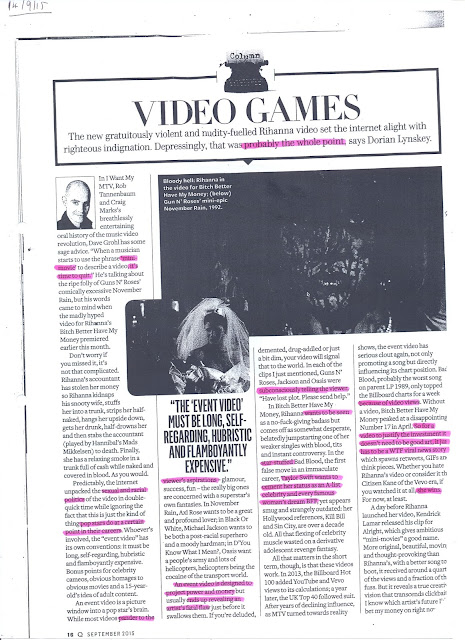Soul music is a combination of gospel and R&B. It began in the 1950s,and it's roots originate from four main sources: racial, historical, geographical and economical(3). Applying Altman's theory to this music video is easily applicable when you watch the music video, due to the fact this video subverts generic conventions in my opinion, as this music video is arguably controversial. This video supports the ideology that there is no such thing as 'pure' genre anymore, as this song/video is a mixture of soul, gospel and rock 'n' roll.
Fiske's theory also applies to this music video, as the video definitely represents the zeitgeist and tells the audience something about the way of the world. This music video represents the zeitgeist, as it clearly signifies and represents the issues relating to homosexuality in Russia. I feel this music video definitely fits this theory and ideology, and it's possible that other music videos of this genre also reflect the zeitgeist and help support this theory.
The entire music video is in black and white, which I feel also helps represent the zeitgeist. I feel that the zeitgeist is negative, and that the main theme in the music video is negative. Furthermore, black and white is seen as depressing and therefore helps get the message across that the main theme is also negative.

 I feel that the part in the music video where the two men bury the chest, with a large metal lock around it, in the ground signifies that they have to hide their love in order to protect themselves from other people who disagree and are against it. It also suggests that in Russia people have to bury their love deep in order to prevent the risk of them getting caught. I believe that this scene in the video represents the zeitgeist and supports Fiske's theory once more.
I feel that the part in the music video where the two men bury the chest, with a large metal lock around it, in the ground signifies that they have to hide their love in order to protect themselves from other people who disagree and are against it. It also suggests that in Russia people have to bury their love deep in order to prevent the risk of them getting caught. I believe that this scene in the video represents the zeitgeist and supports Fiske's theory once more.
Sources.
(1) http://www.songfacts.com/detail.php?id=32921(2) http://www.reflector-online.com/opinion/article_7f5adde8-b30c-11e4-af17-cfb3caaf4bc3.html
(3) http://randb.about.com/od/rb12/a/Soul_Music.htm


